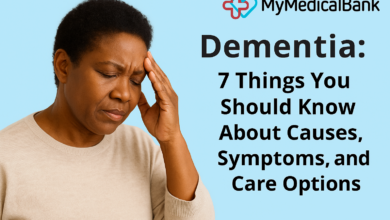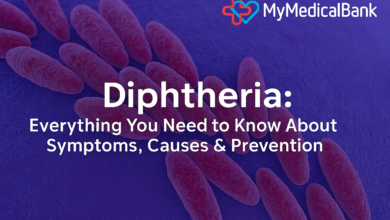What Are the Early Signs of Drug Addiction in Young Adults?

Drug addiction in young adults is a growing concern worldwide. As pressures from school, relationships, identity formation, and social influence pile up, some young people may turn to substances for relief, escape, or experimentation. What may begin as casual use can quickly spiral into dependence. Identifying the early signs of drug addiction in young adults is crucial for timely intervention, support, and rehabilitation. Families, friends, teachers, and peers all play a role in noticing these signs and offering help before the situation worsens.
This article outlines the physical, behavioural, emotional, and social indicators that may suggest a young adult is developing an addiction. By paying attention to these signs, early steps can be taken to offer guidance and treatment before long-term harm sets in.
Early signs of Drug abuse
1. Physical Signs of Early Drug Use
One of the most visible early indicators of drug addiction is physical change. A young adult may experience sudden weight loss or gain, frequent nosebleeds, and bloodshot eyes. Changes in sleep patterns and poor coordination, such as shakes or tremors, may also occur. Unusual body odour or bad breath can be noticeable. While these signs alone may not confirm addiction, a combination of them should prompt concern.
2. Changes in Behaviour and Routine
Drug use often causes a dramatic shift in behaviour. A young adult might stop participating in hobbies, switch friend groups without reason, or lose interest in academics. They may begin to skip school, ignore house rules, or show a sudden lack of direction in life. Increased secrecy, lying, or stealing may follow as they attempt to cover up their activities. Such behavioural changes are often gradual, but they may also appear suddenly, depending on the substance involved.
3. Emotional and Mental Health Changes
Mood swings, increased irritability, and sudden anger may become more frequent. Depression and anxiety can intensify, and some young people may display signs of emotional withdrawal or even reckless confidence. While emotional instability is sometimes dismissed as part of growing up, these changes should not be overlooked when they are extreme or persistent.
4. Social Withdrawal and Relationship Strain
A young adult developing an addiction may start avoiding family events, distancing from close friends, and isolating themselves. They might prefer spending long hours alone or suddenly clash with people they previously got along with. This social withdrawal is often a way to hide their substance use and can signal deeper emotional struggles.
5. Unexplained Financial Problems
Addiction often leads to financial strain. A young person may repeatedly ask for money without offering clear reasons or show signs of spending without any visible income. Families might notice missing items or money from the home. Borrowing from peers or avoiding repayment can also be signs of a hidden problem.
6. Paraphernalia and Physical Evidence
The presence of drug-related items such as syringes, burnt spoons, or small unlabelled bags can point to substance use. Strong chemical smells or hidden stashes of pills are also red flags. While these are clear warning signs, they are not always easy to spot unless there is active involvement in the young person’s daily life.
7. Changes in Personal Hygiene and Appearance
A shift in appearance is another possible indicator. A young adult who once cared about their looks may start neglecting hygiene. They might wear the same clothes for days, avoid bathing, or stop caring for their hair and nails. This can be linked to both depression and substance use.
8. Increased Risk-Taking Behaviours
Drugs can impair judgment and lower inhibitions, leading to risky behaviour. Driving under the influence, unsafe sexual activity, or getting into fights may become more frequent. Some young people may even engage in petty crimes. These actions reflect a disregard for consequences and a growing dependence on substances.
9. Resistance to Help or Defensive Reactions
When confronted, a young adult who is developing an addiction may react strongly. They might deny using substances, become hostile, or blame others for their struggles. Even simple questions may trigger anger or defensiveness. Such reactions often come from fear, guilt, or shame.
Why You Should Speak Out Fast
Early intervention matters. When you notice warning signs of drug addiction, speaking out quickly can prevent a minor issue from turning into a serious one. If left unaddressed, early emotional or behavioural changes can escalate, affecting academic performance, relationships, self‑esteem, and even long‑term physical health. The sooner someone is aware and supported, the higher their chances of recovery and the less damage their addiction can cause.
Fast action creates safety. By voicing your concern early, you communicate care and reduce isolation. Young adults often hide their problems out of shame or fear. If someone feels understood rather than judged, they are more likely to open up. In turn, speaking out early can foster open dialogue, allowing friends or family to work together in finding professional support.
Fortunately, help is accessible. Platforms like MyMedicalBank.com provide options for confidential access to mental health professionals, including psychiatrists, psychologists, counsellors and mental health nurses via video, audio or chat. You can register, book sessions, and receive expert help from anywhere in Nigeria. Using mymedicalbank means young people don’t have to wait for a crisis; they can begin therapy or coaching the moment signs appear, offering the best chance for positive change.
Conclusion
Drug addiction in young adults rarely begins as full-blown dependence. It starts subtly, with small behavioural shifts and emotional changes that may seem minor at first. Recognising these early signs is key to preventing long-term harm. The earlier a young adult receives guidance, the better their chances of recovery. Families, educators, and friends must keep their eyes open and act with compassion, not condemnation. Support systems, open conversations, and access to professional help can make a life-saving difference.
If you notice any of the signs outlined above, start with a conversation. Show concern without accusation. Offer to help find support. Addiction can be treated, especially when caught early, and no one should have to face it alone.



